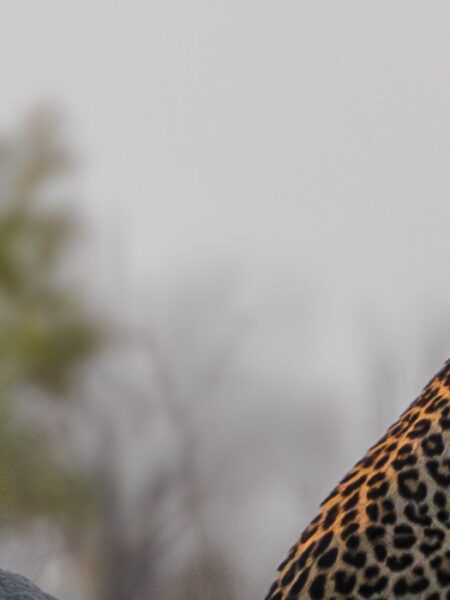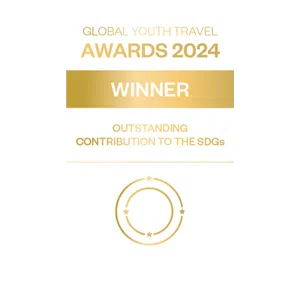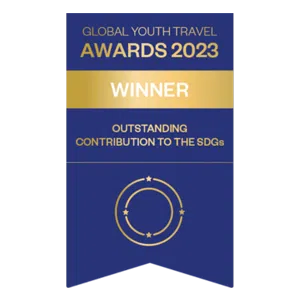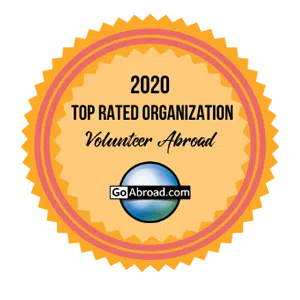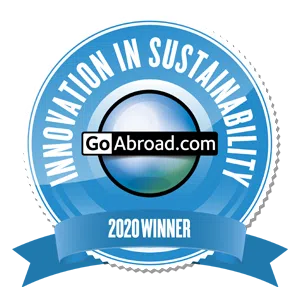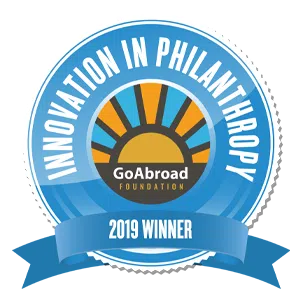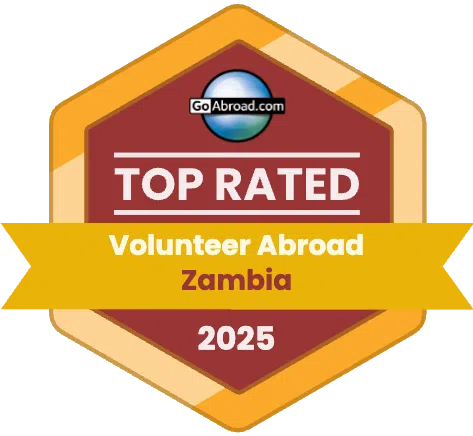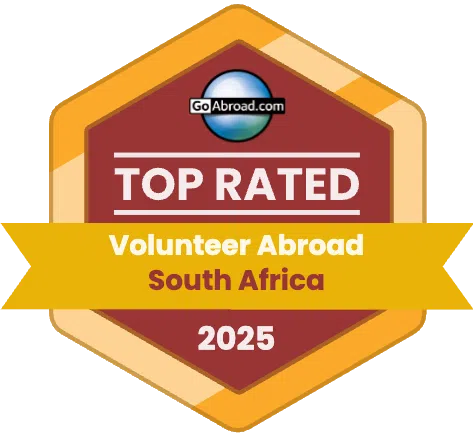This summer, I had just finished my master’s degree back home in Copenhagen, Denmark before I arrived in Cape Town to begin my internship with African Impact’s Foundation for four months. After my first two months in this fascinating and beautiful city, I am completely in love! A short blog can never fully express the atmosphere, the colors, the diversity, the landscape, the people and the energy of Cape Town – you must experience it on your own. Instead, let me tell you about how it feels to live in a city and country with one of the most extraordinary, and troubled, histories you will ever find.
Have you ever watched the movie Invictus? The film with Morgan Freeman in the role of Mandela and Matt Damon in the role of captain of the South African national rugby team (the Springboks) during the Rugby World Cup in 1995. In short, Mandela had just become the first democratically-elected president of South Africa and is working to reunite the divided country after centuries of colonialism and 50-years of Apartheid-rule. Simultaneously, South Africa is hosting the Rugby World Cup, which (spoiler alert) South Africa surprisingly wins. Keep in mind that the country was on the brink of civil war in the early 1990’s, rugby was historically the “white man’s” game and the Springboks were a symbol of Apartheid for the black population. In addition, the South African team had just a single black player on the ‘95 team, despite approximately 87% of the population being “black” or “colored” (South African terminology). Mandela used the tournament and the success of the Springboks to send a message of unity and reconciliation to the people; because if he – after 27 years of imprisonment under Apartheid-rule – could forgive everybody and support the “white” rugby team, then so could the rest of the population.
Experiencing South Africa for myself
Going to Robben Island and experiencing the township communities of Cape Town made me realize that the history I was taught in primary school about Apartheid and Nelson Mandela actually happened. If you want to make the history come to life then watch Invictus while living in South Africa. I did just that a few weeks ago with some friends and I basically had goosebumps throughout the entire movie. There is one particular scene in the movie, where Mandela requests that the rugby team visit a township and practice with the kids in order to create some positive PR, i.e. the “white” rugby team is visiting the “black” community. Let me explain why this made a big impression on me.
A few months before I arrived here I saw an amazing picture of downtown Cape Town with Table Mountain in the background and the Cape Town Stadium by the water (just Google ‘Cape Town’ and you will find the picture). Back then I thought the picture more or less captured all of Cape Town, with the townships located outside the city. I did not realize that Cape Town is not just Table Mountain, Camps Bay and shark cage diving; a significant part of the City of Cape Town includes the township communities of Khayelitsha, Masiphumelele, Langa, and more. It is in these areas where African Impact volunteers work on primarily educational, sports, and gender equality projects.
MORE: Volunteer with us in Cape Town
There is more than meets the eye
Although the official numbers are much lower, it is estimated that approximately 2.8 million people live in Khayelitsha alone, where the poverty is obvious and more than half of the residents are officially unemployed. These former townships show that although Apartheid ended almost a quarter of a century ago, there is still a long way to go to reach some sort of equality in Cape Town and South Africa. However, in spite of the conditions, there is a fantastic vibe there. Kids play happily in the street, while local music roars from one of the many grills on the side of the streets preparing chicken, pork, beef, and a popular delicacy of boiled sheep heads.
African Impact’s Sports Program
One of our programs in Langa (the oldest township in South Africa) is an after-school rugby academy for 11 to 14 year-olds called VUSA, which offer homework assistance and rugby practicing with skilled rugby coaches (including games in the weekends), topped off with a nutritious meal after training. Not only are these young men kept away from the negative influences of the “streets”, but the program also helps them to develop healthy habits and both social and physical skills. In fact, this academy has, during the past decade, produced several professional players – including current Springbok superstar – Sikhumbuzo Notshe! We go there twice a week to help the coaches facilitate the practices for the more than 60 kids who show up every time. It is absolutely incredible to play sports with these energetic, happy, tough and skilled kids, to get to know them, hear about their dreams and enable them to play sports in a safe environment – with Devil’s Peak (a mountain that forms part of Table Mountain National Park) in the background! Basically, bring a ball, your enthusiasm, and show that you care for the kids, and then you quickly start to feel that you are making your small impact in their lives – but possibly more significantly; experience the impact these kids and the projects are making on you.
MORE: Volunteer with us on our sports program in Cape Town
My Invictus Experience
This brings us back to the scene from Invictus, where the Springboks visit the township and play rugby with the kids. Can you imagine the excitement of the kids and the entire township that day, 23 years ago? Let alone the impact on the country from winning the Rugby World Cup! My oh my! There is nothing like sport to bring people together (South Africa felt a similar unifying feeling relatively recently, during the 2010 FIFA World Cup). Sport has the power to captivate and unite people across religious beliefs, races, genders, and economic conditions. In fact, not only did the ‘95 Rugby World Cup victory act as a catalyst towards the rebuilding of South Africa, but it defined the nation. Try to imagine the moment when Mandela walked out on the field before the final against the New Zealand All Blacks to shake the players’ hands, wearing a Springbok jersey. Extraordinary.
Sport has always been a big part of my life, but for most of my life (as I grew up in Denmark) I have taken it for granted that I could play sport in a safe environment. I usually do not think about the potential power of sports when I play soccer with friends during the summer back home. However, South Africa has reminded me that sport means empowerment, inspiration, and positive influence. Sports can be fun and sports can be political. Prior to the World Cup, many non-white kids would refuse to wear a Springbok jersey due to the chance of other kids making fun of them or beating them up – a possibility alluded to during Invictus. Today, at academies like VUSA, underprivileged black kids play rugby as the most natural thing in the world. Therefore, to play rugby with the kids at VUSA and then watch the Invictus scene of the Springboks visiting the township back in ‘95 enables you to feel the history in a fundamental, but powerful way. Evidently, the impact of Mandela and the ‘95 World Cup goes far beyond sports as they symbolize unity of an entire nation.
To come full circle, the final part of the closing credits of the movie shows a scene of South African kids playing rugby at Langa Stadium – the same facility where we run the VUSA program!
Although I was not here in South Africa in 1990 when Mandela was released, or in 1994 when he became president, or in 1995 when the Springboks won the World Cup, I can still feel and see the history of Apartheid and Mandela in 2018 when driving through the different townships and when playing rugby in Langa. These events really did not happen that long ago! Much remains to be done in South Africa to create sustainable equality and eliminate poverty and hunger, but the transformation from the divided country a quarter of a century ago to the South Africa of 2018 is simply remarkable.
It was a long walk to freedom, but as the two green merging stripes in the South African flag represents; the country has come together and is slowly trending, as one people, towards equality. Thus, it is exciting, fascinating and inspiring to live in Cape Town for a long list of reasons, but in particular because of the powerful history that I feel every day. The endless amounts of physical and cultural activities, the atmosphere, the beautiful landscape, and the energy of Cape Town, you will have to experience on your own.
Stay up to date and never miss out.
To stay up to date with our latest volunteer project developments, news and promotions. No spam, just high quality content.
"*" indicates required fields
Other recent blog posts

5 Best Projects for Volunteer Wildlife Conservation in Africa
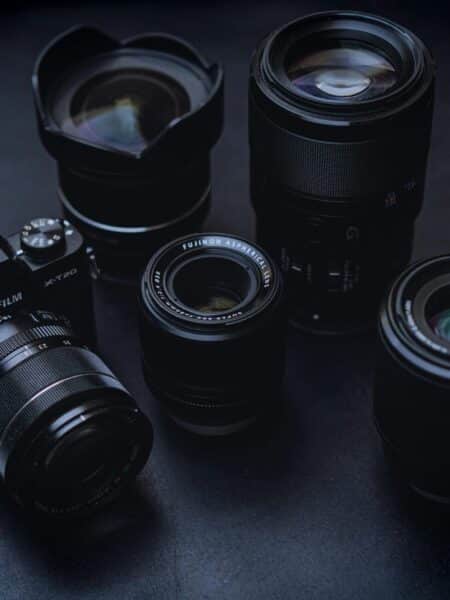
Basic Camera Settings for Wildlife Photography
